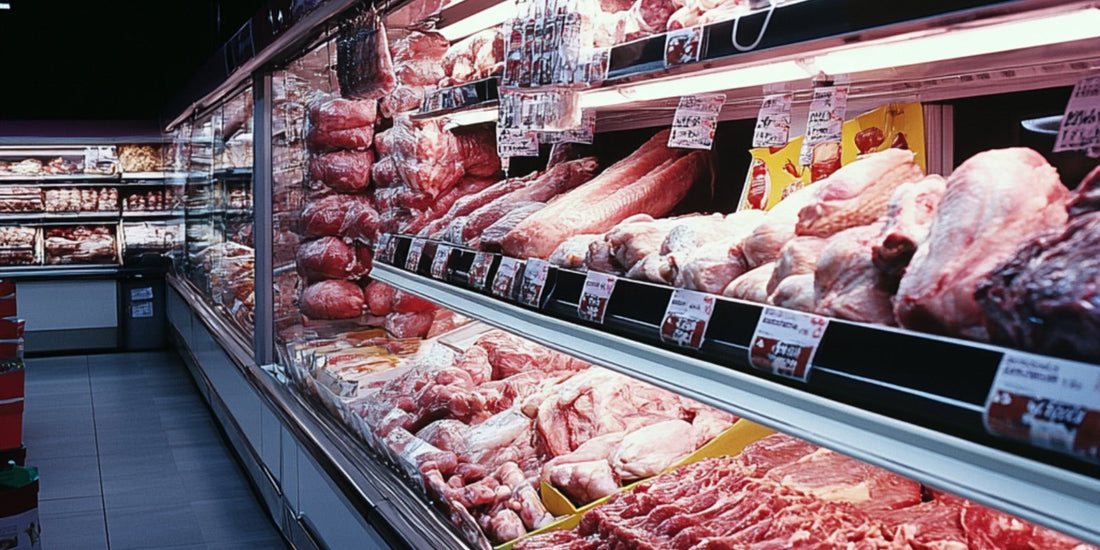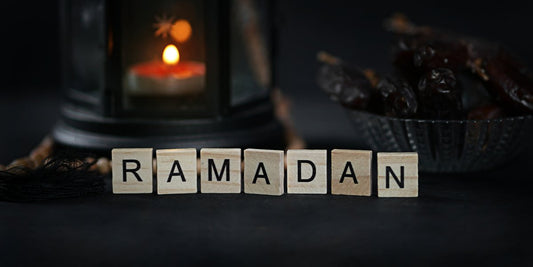
Ah, the familiar dance through the grocery store aisles, dodging other shopping carts like seasoned pros/real life Mario Kart, only to find ourselves lost amidst rows of labels and endless possibilities. Grocery stores are just like mazes sometimes, aren’t they?
In a world where meat plays a vital role in diets worldwide, serving as a significant source of protein and essential vitamins and minerals, the importance of making wise choices cannot be overstated.
With that said, perhaps you've tried both Halal and non halal meat before, or maybe you're just curious about the differences. Either way, when you wind up in the meat section, labels can be confusing, and your need for clarity is definitely understood.
"Halal" may catch your attention, but what sets it apart from the rest? With decades of experience behind us, here’s what we, at HWD, have to share.

Exploring Halal Meat:
It's not just about what's on the label; it's about the journey from farm to fork. From the ritual slaughter, where each animal is blessed with a dedication to Allah (swt) to the meticulous adherence to Islamic dietary laws, Halal meat is a balance of tradition and taste, that is prepared carefully and meaningfully.
Taste the Difference:
First and foremost, delicious halal cuisines are characterized by deep flavor, and even deeper faith. You're not just indulging in top notch quality meals, you're honoring centuries of religious tradition and culture, where compassion is at the forefront.
Halal, derived from Islamic teachings, refers to what is permissible or lawful in Islam. Halal meat adheres to specific guidelines outlined in the Quran and Hadith, ensuring that the meat is prepared in a manner consistent with Islamic dietary laws. These laws dictate not only the method of slaughter but also the treatment of animals and the avoidance of certain prohibited substances.
When shopping, look for the Halal certification symbol, a seal of trust that ensures adherence to religious dietary laws.
Halal Meat vs non Halal

What makes Halal meat different:
Method of Slaughter:
Halal Meat: The slaughter of animals for Halal meat involves the recitation of the name of Allah, known as the Tasmiyah or Shahada, by a Muslim butcher. The slaughter must be swift and humane, ensuring minimal pain and distress for the animal. The thorough draining of blood during the Halal slaughter process not only adheres to religious principles but also contributes to the cleanliness and safety of the meat. Blood contains various microorganisms and pathogens that can contain diseases, so ensuring its complete removal significantly reduces the risk of contamination. As a result, Halal meat is not only deemed permissible for consumption but also considered cleaner and safer due to this added diligence. Halal is prepared with the animal and you, in mind.
Regular Meat: Conventional meat production may involve various methods of slaughter, including stunning before slaughter, which is not permissible in Halal meat production. In conventional meat production, the blood may not be fully drained from the carcass, as the focus is often on efficiency, quickly churning out more products for profit, rather than quality.
Treatment of Animals:
Halal Meat: Islamic teachings emphasize the humane treatment of animals throughout their lives, including providing them with proper nourishment, space, and care.
Regular Meat: While regulations exist to ensure the welfare of animals in conventional farming practices, the standards may vary, and there may be instances where animals are subject to overcrowding or inadequate living conditions.
Prohibited Substances:
Halal Meat: Islamic dietary laws prohibit the consumption of certain substances, such as pork and alcohol. Halal meat ensures that these prohibited substances are not used in the rearing or processing of animals.
Regular Meat: Conventional meat may contain additives, preservatives, or substances that are not permissible in Halal meat, such as gelatin derived from non-Halal sources.
Accessing Halal Meat:
With the increasing demand for Halal products, including meat, options for accessing Halal meat have expanded. From specialty Halal butcher shops to online platforms offering Halal meat and grocery delivery services, consumers now have greater accessibility to quality Halal products, including online Halal deli meats. These avenues enable individuals to uphold their dietary preferences while enjoying the convenience of modern shopping methods.
Understanding the difference between Halal meat and regular meat is paramount for Muslim consumers or those seeking to learn about Islamic dietary practices. By understanding what makes Halal meat different, you can make informed choices. With the availability of Halal meat through various channels, including online platforms offering Halal meat and grocery delivery, maintaining a Halal diet has become more accessible than ever before.
At HWD, we offer halal meat and grocery delivery. Whether you're new to it, or simply looking to restock your pantry with Halal essentials, we're here to make your Halal shopping experience hassle-free.






